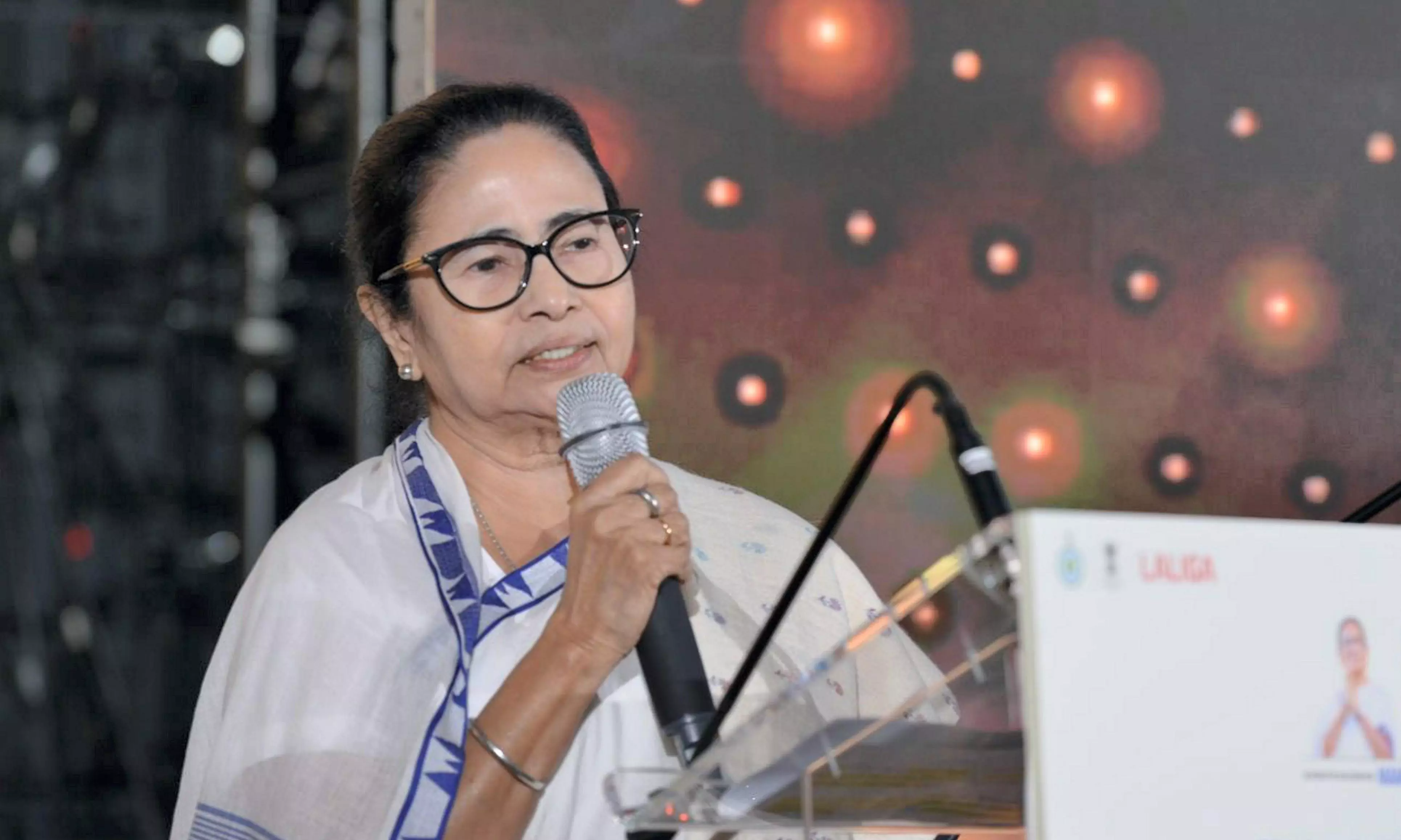
Bengal gets taste of Dalit politics as Mamata spins new caste narrative
For first time, TMC government has attempted to bring various SC groups under one encompassing Dalit identity, ostensibly to counter BJP

West Bengal Chief Minister Trinamool Congress supremo Mamata Banerjee is eyeing for a new social engineering formula in the state by introducing the term “Dalit” in its political lexicon.
Dalit as a unifying identity for various sub-castes under the Scheduled Caste (SC) has been an alien concept in the state that had been dominated by class politics under the Left Front regime for several decades. The caste issues though have never been irrelevant in Bengal; the SC sub-groups did not try to acquire a generic identity.
Even after Banerjee introduced the caste politics in the state by aggressively wooing separate SC groups such as Matuas and Rajbanshis to dislodge the Left, the groups did not join fronts. They maintained their distinctiveness both in terms of identity and aspirations.
Banerjee’s TMC government for the first time made an attempt to bring the various SC groups under one encompassing Dalit identity, ostensibly to counter the BJP. Her government has set up a Dalit-Bandhu Welfare and Development Board for the benefits of the underprivileged community. The state already has separate development boards for different SC communities (such as Namasudra Development Board, Matua Development Board and Rajbangshi Development Board).
Dalit body
The 11-member Dalit development board would address common issues related to all SC communities, said chairman of the board, Pradip Bansfore. The board will start functioning from December 27, he added.
This is for the first time an attempt has been made to reach out to the various SC sub-castes of the state as one homogenous community to chart a common welfare and development plan, said a senior official of the Backward Classes Welfare Department.
Incidentally, the nascent board comes at a time when the TMC is pitching for a Dalit as a prime ministerial face of the combined Opposition.
TMC sources said Banerjee is consciously trying to construct a common identity for all the SC groups ahead of 2024 general elections to offset the BJP’s caste-based outreach.
The BJP ended the TMC’s monopoly over the caste politics in Bengal in 2019 by separately engaging with two major SC groups of the state -- Matuas and Rajbangshis.
Though the TMC regained much of its lost ground in the 2021 assembly elections, the BJP still has a significant support base among Rajbangshis and Matuas, the two largest SC groups in the state.
Dalit numbers
West Bengal has an SC population of more than 23 per cent. Rajbanshis account for 18.4 per cent of the state’s total SC population followed by the Namasudras at 17.4 per cent and Bagdis at 14.9 per cent. Matuas are part of the larger Namasudra community.
The caste-based politics in Bengal is mainly centred around Rajbangshis and Matuas. The TMC supremo is trying to expand its ambit by cobbling together all the sub-castes under one larger identity.
“Didi (as Banerjee is endearingly referred to by her party colleagues) is trying to set a new caste narrative by importing the term Dalit in the state’s socio-political fabric,” said a TMC leader from Matua community.
One factor that compelled Banerjee to push for a common identity for the SCs, according to TMC sources, is the likelihood of the BJP-led central government framing rules of the Citizenship Amendment Act (CAA) by March next year.
Long-pending demand
That would meet a long-pending demand of the Matuas and could sway the support of the community in the BJP’s favour in the general elections.
“Mamata is trying to link Matuas with a larger Dalit identity with a hope to counter the BJP,” said senior journalist Md Saduddin, who has extensively written on issues pertaining to minorities and the backward communities of the state.
Only time can say whether her gambit will succeed. But there is no gainsaying that caste politics will only be further entrenched in Bengal -- a far cry from the statement of then chief minister late Jyoti Basu before the Mandal Commission in 1980 that in West Bengal there were only two castes: the rich and the poor.

